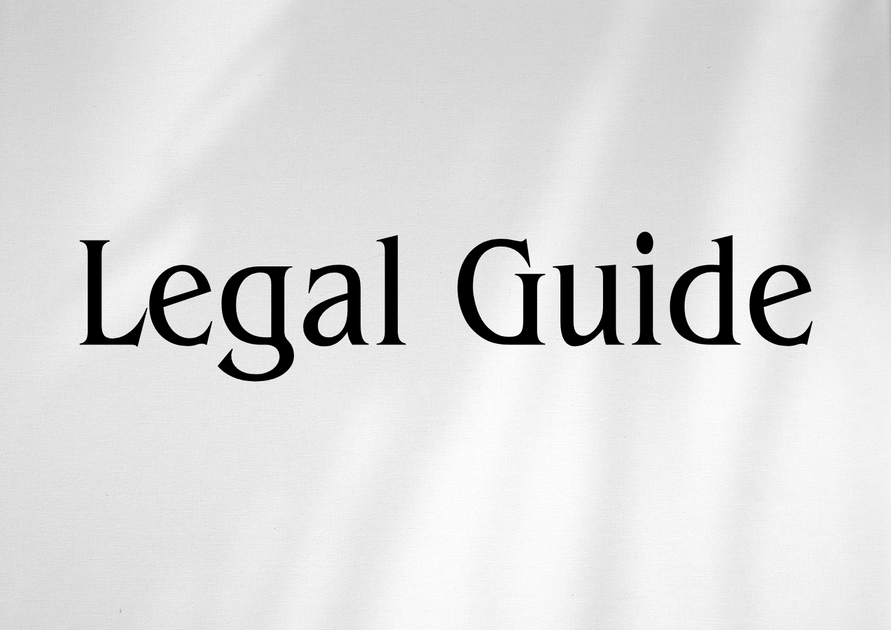Introduction: The Strategic Importance of Loan Enforcement in UAE’s Modern Legal Framework
Enforcement of loan agreements and security instruments remains a cornerstone of financial stability and investor confidence in the United Arab Emirates. With the UAE continually strengthening its legislative frameworks in line with global best practices, ensuring that loan agreements and their associated security structures are enforceable is of paramount importance for banks, investors, corporations, and entrepreneurs. This legal landscape has seen significant enhancement in recent years, particularly following key amendments brought forward by Federal Decree-Law No. (50) of 2022 on the Civil Transactions Law, the updated Federal Decree-Law No. (20) of 2016 on the Pledge of Movable Assets as Security for Debts, and the introduction of the 2023–2025 Civil Procedure Code reforms.
Against this dynamic regulatory backdrop, understanding the practical enforcement mechanisms—alongside risks and compliance strategies—enables businesses to mitigate default risks, secure transactions, and avoid costly disputes. This advisory article provides a consultancy-grade analysis of current UAE law, offering actionable insights for business leaders, lenders, and in-house legal professionals navigating loan documentation and security enforcement in 2024 and beyond.
Table of Contents
- Overview of Loan Enforcement Laws in UAE
- Essential Requirements and Formalities for Loan Agreements
- Secured Versus Unsecured Loans: Legal Differences
- Types of Security Instruments and Their Enforcement
- Judicial and Non-Judicial Enforcement Mechanisms
- UAE Law 2025 Updates and Key Legislative Changes
- Case Studies and Practical Scenarios
- Risks of Non-Compliance and Corporate Compliance Strategies
- Conclusion: Forward-Looking Perspectives and Compliance Best Practices
Overview of Loan Enforcement Laws in UAE
Core Legal Framework
The UAE’s approach to the enforcement of loan agreements and security instruments is governed primarily by:
- Federal Decree-Law No. (50) of 2022 (New Civil Transactions Law): Comprehensive rules on contractual obligations and enforcement procedures.
- Federal Decree-Law No. (20) of 2016 (Pledge of Movable Assets Law, as amended): Details on the creation, registration, and enforcement of pledges and security interests over movable assets.
- Cabinet Resolution No. (33) of 2020 (Executive Regulations of the Pledge Law): Clarifying registration protocols and procedures for movable asset pledges.
- Federal Law No. (18) of 1993 (Commercial Transactions Law, as amended): Rules on commercial loans, banking relationships, and securities.
- Federal Decree-Law No. (42) of 2022 (Civil Procedure Code): Procedural rules for judicial enforcement and summary execution.
In addition, specific regulations apply to real estate mortgages, assignability, and insolvency proceedings, including Federal Law No. (9) of 2016 (Bankruptcy Law).
Regulatory Bodies and Enforcement Landscape
The Ministry of Justice, local courts of the emirates, the Ministry of Economy, and recently, the Emirates Movable Collateral Registry play key roles in supervising and facilitating the enforcement process. This synergy ensures that both creditors and debtors operate within an increasingly transparent and predictable framework, reducing transactional uncertainty and market risk.
Essential Requirements and Formalities for Loan Agreements
Key Elements for a Valid Loan Agreement
A loan agreement under UAE law must include:
- Clear identification of the parties
- The amount of the loan (principal)
- Repayment terms and schedule
- Applicable interest rate, if any (subject to usury rules under Shariah)
- Security provision(s), if the loan is secured
- Governing law and dispute resolution clause
In most cases, written documentation is highly recommended, though oral contracts may be recognized in certain circumstances. For corporate or high-value loans, written and properly executed agreements are essential for enforceability.
Formalities: Registration and Notarization
While standard commercial loans do not require registration, certain security interests—particularly mortgages and pledges on movable assets—must be registered with the relevant public registry (e.g., the Land Department for real property, the Emirates Movable Collateral Registry for movables). Failure to register may render the security interest unenforceable against third parties. Notarization may also be required for some instruments, such as powers of attorney or guarantees.
Comparison: Old Versus New Law Requirements
| Requirement | Pre-2022 Regime | Post-2022 Amendments |
|---|---|---|
| Pledge Registration | Limited options; not all movable assets recognized | Wider recognition; mandatory use of central registry for movables |
| Enforceability of Oral Agreements | More risk for oral contracts | Stricter emphasis on written agreements, especially for corporates |
| Interest Rate Regulation | Ambiguous; reliance on court interpretation | Clarified within legislative guidelines with Shariah limitations |
Secured Versus Unsecured Loans: Legal Differences
Definition and Distinction
Secured loans are backed by collateral—tangible or intangible assets pledged by the debtor or a third party. Unsecured loans rely solely on the borrower’s creditworthiness and impose higher risks for the lender, often compensated by higher interest or restrictive covenants.
Main Categories of Security
- Mortgage: Rights over immovable property (land or building), governed by Federal Law and local land department rules.
- Pledge: Non-possessory pledge over movable assets and certain intangibles, following Federal Decree-Law No. (20) of 2016.
- Assignment: Assignment of receivables or other rights, often used for trade finance.
- Guarantee: Third-party guarantee, personal or corporate, enforceable under the Civil Transactions Law.
Practical Implications: When Security Matters
A secured loan considerably enhances the creditor’s position in default, providing a priority claim over the collateral. In contrast, unsecured creditors may face protracted litigation and be subordinated in insolvency distributions.
Types of Security Instruments and Their Enforcement
Common Security Instruments in UAE Practice
- Real Estate Mortgage: Must be registered with the respective Emirate’s Land Department (e.g., Dubai Land Department). Provides the lender with a right to judicially auction the property in the event of default.
- Share Pledge: Shares in UAE companies can be pledged, typically requiring board and shareholder resolutions, and registration on the share register.
- Movable Asset Pledge: Broadly recognized under Federal Decree-Law No. (20) of 2016, the pledge over movable assets is perfected by registration with the Emirates Movable Collateral Registry (EMCR).
- Account Assignment: Assignment of receivables or cash flows, typically made effective by notification to the debtor and, where required, registration.
- Corporate and Personal Guarantees: Often supplement secured loans, providing an alternative path for recourse.
Enforcement Prerequisites and Process
To enforce a security instrument in the UAE:
- Establish Validity: Confirm the loan and security documents meet all legal requirements (registration, notarization, execution by authorized signatories).
- Certify Default: Establish and evidence debtor’s default in repayment or performance.
- Initiate Enforcement: Depending on the security type—initiate court proceedings for judicial sale, summary execution, or notify the EMCR for non-judicial enforcement (where eligible).
Enforceability: Real World Observations
Recent reforms have improved enforcement timelines—particularly for registered pledges and mortgages—reducing creditor exposure to lengthy court proceedings. However, lenders and corporates must ensure strict compliance with both procedural and substantive requirements.
Judicial and Non-Judicial Enforcement Mechanisms
Judicial Enforcement in UAE Courts
Traditional enforcement involves litigating before the onshore courts or relevant free zone forums (e.g., DIFC Courts). Civil Procedure Code amendments (Federal Decree-Law No. 42 of 2022) have introduced summary execution procedures for executory documents, including notarized loan agreements, mortgages, and registered security instruments. These allow for expedited rulings when defaults are clear and uncontested.
Non-Judicial (Extra-Judicial) Enforcement
The 2016 Pledge Law and its executive regulations permit non-judicial enforcement of certain registered security interests. Following default, and subject to notice, the creditor may seize and dispose of pledged movable assets without a court order, provided that the pledge is registered and the process follows statutory notice requirements. This feature represents a critical advancement for lenders seeking prompt recourse.
Process Flow Diagram Suggestion
Visual Suggestion: A process flow chart depicting the step-by-step enforcement process for a registered movable asset pledge—from default notification to asset liquidation—can help clients understand the efficiency of non-judicial enforcement.
International Instruments and Recognition
The UAE’s commitment to cross-border enforcement is reflected in its adoption of several international treaties, including the New York Convention (for arbitral award enforcement). Moreover, judgments rendered in DIFC or ADGM courts may, under certain conditions, be enforced across mainland UAE or abroad, further bolstering creditor rights in international financings.
UAE Law 2025 Updates and Key Legislative Changes
Recent Developments: What Has Changed?
The UAE has regularly updated its legislative framework to balance lender protection with business fluidity. Key reforms for 2023–2025 include:
- Expansion of the Emirates Movable Collateral Registry’s scope to include a wider array of assets and priority rules among creditors.
- Introduction of digital registration and pledge renewal processes via the Ministry of Economy’s online portal, reducing administrative delays.
- Clarification of “executory document” status for certain types of loan and security agreements, making them eligible for summary judicial enforcement.
- Enhanced consumer protection and anti-abuse safeguards to limit excessive interest or improper enforcement tactics.
| Area | Pre-2023 Rules | 2024–2025 Updates |
|---|---|---|
| Pledge Registration | Manual, slower, limited accessibility | Fully digital, streamlined, accessible portal |
| Scope of Assets | Movables narrowly defined | Expanded to include intangibles, advanced notice system |
| Procedural Safeguards | Vague, potential for delay | Clear notice periods, dispute resolution embedded in rules |
Impact for Lenders, Borrowers, and Advisors
These changes significantly reduce legal uncertainty, accelerate enforcement, and help attract foreign direct investment by aligning UAE practice with international standards (including UNCITRAL guidelines for secured transactions).
Case Studies and Practical Scenarios
Case Study 1: Enforcing a Movable Asset Pledge in 2024
Background: A UAE-based manufacturer obtains a working capital facility, pledging its machinery and receivables through an EMCR-registered instrument.
Default: Upon payment failure, the bank issues the statutory notice and—following the 2023 updates—initiates non-judicial enforcement. Within weeks, the machinery is seized and liquidated, with notification to all affected parties, reflecting speedier recovery compared to pre-reform timelines.
Case Study 2: Risks of Failing to Register a Real Estate Mortgage
Background: A corporate borrower and lender sign a mortgage agreement over a Dubai warehouse but fail to register it with the Land Department.
Outcome: When the borrower defaults and a third-party creditor secures a judgment, the mortgage holder lacks priority, losing recourse despite the underlying contract. This highlights the vital importance of registration and compliance with formal requirements.
Case Study 3: Summary Judicial Enforcement of Executory Documents
Background: An SME borrows funds based on a notarized loan agreement. Upon default, the lender immediately applies for summary execution under the amended Civil Procedure Code.
Implications: The court issues a provisional order for debt repayment without full litigation, showcasing how amended rules benefit creditors holding properly documented “executory” agreements.
Risks of Non-Compliance and Corporate Compliance Strategies
Legal Risks and Enforcement Pitfalls
Non-compliance exposes parties to substantial risks, including:
- Inability to enforce security instruments against third parties due to defective registration
- Potential for prolonged litigation, injunctions, or debtor protections under bankruptcy law
- Civil and—rarely—criminal liability for fraud or misrepresentation
- Damaged credit ratings and reputational harm in banking and B2B relationships
Compliance Checklist: Securing Enforceability
| Step | Best Practice |
|---|---|
| Contract Drafting | Use recent legal precedents and ensure clarity, completeness, and governing law provision |
| Execution | Secure signatures by authorized representatives; obtain resolutions where required |
| Registration | Register mortgages, pledges, or assignments in the relevant registry without delay |
| Notarization | Notarize guarantees, POAs, and documents designated as “executory” |
| Review Legal Updates | Periodically consult with legal advisors to ensure compliance with new decrees (e.g., UAE law 2025 updates) |
Visual Suggestion: A compliance checklist infographic outlining these best practices would enhance engagement and provide a quick reference for clients.
Recommended Compliance Strategies for Corporates and Lenders
- Institute robust documentation and records management with bilingual agreements (Arabic preferred in onshore lending)
- Proactively monitor legal developments via the UAE Ministry of Justice and Federal Legal Gazette bulletins
- Conduct periodic training for internal teams on proper securities documentation and enforcement steps
- Engage experienced local counsel to vet transactions and handle registrations
- Consider D&O insurance to offset management liability risk in complex or high-value portfolios
Conclusion: Forward-Looking Perspectives and Compliance Best Practices
The evolving legal ecosystem for loan agreements and security enforcement in the UAE stands at the convergence of global best practice and local innovation. The stringency introduced by Federal Decree-Law No. (50) of 2022, combined with enhancements under the 2023–2025 reforms, underscores the UAE’s commitment to transactional certainty, creditor protection, and sustainable business growth.
Going forward, corporates and lenders must prioritize meticulous documentation, timely registration, and adherence to regulatory changes. Organizations that remain proactive—continually updating internal protocols and consulting with legal advisors—will be best positioned to capitalize on new opportunities and mitigate enforcement risks. As enforcement efficiency and cross-border recognition advance, the UAE cements its status as a regional financial and commercial hub, attracting investment and fostering responsible lending.
For tailored legal assistance or to ensure your company’s lending and security instruments align with the latest UAE regulations, consult an accredited local legal advisor or contact our specialist team today.



